-
 bitcoin
bitcoin $87959.907984 USD
1.34% -
 ethereum
ethereum $2920.497338 USD
3.04% -
 tether
tether $0.999775 USD
0.00% -
 xrp
xrp $2.237324 USD
8.12% -
 bnb
bnb $860.243768 USD
0.90% -
 solana
solana $138.089498 USD
5.43% -
 usd-coin
usd-coin $0.999807 USD
0.01% -
 tron
tron $0.272801 USD
-1.53% -
 dogecoin
dogecoin $0.150904 USD
2.96% -
 cardano
cardano $0.421635 USD
1.97% -
 hyperliquid
hyperliquid $32.152445 USD
2.23% -
 bitcoin-cash
bitcoin-cash $533.301069 USD
-1.94% -
 chainlink
chainlink $12.953417 USD
2.68% -
 unus-sed-leo
unus-sed-leo $9.535951 USD
0.73% -
 zcash
zcash $521.483386 USD
-2.87%
how to reduce gas fees on ethereum
By using Layer 2 solutions like Polygon and Arbitrum, Ethereum users can access faster and cheaper transactions, mitigating the impact of increased network congestion.
Oct 22, 2024 at 10:18 am
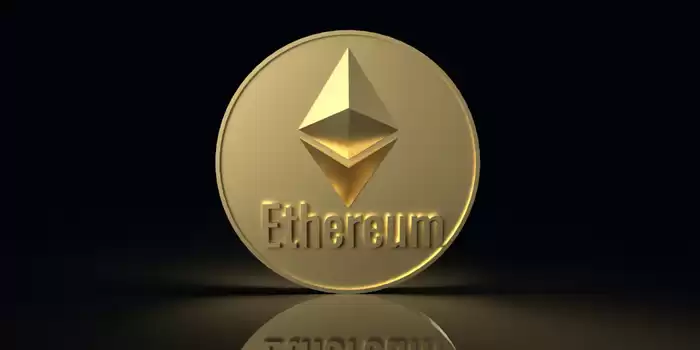
How to Reduce Gas Fees on Ethereum
Ethereum's surging popularity has led to increased network congestion, resulting in higher gas fees for transactions. However, there are several strategies users can employ to mitigate these expenses:
- Choose a Slower Time: Ethereum's network is busiest during peak hours. Consider scheduling transactions during off-peak times, such as late at night or early in the morning, when gas fees tend to be lower.
- Use Layer 2 Solutions: Layer 2 protocols, like Polygon and Arbitrum, operate on top of Ethereum, allowing for faster and cheaper transactions. By using these solutions, users can pay lower fees while still interacting with the Ethereum blockchain.
- Check Gas Price Estimators: Before sending a transaction, consult gas price estimators like Etherscan or GasNow to gauge current network conditions and estimate the optimal gas fee to use.
- Consider Batching Transactions: If possible, combine multiple transactions into a single one. This reduces the number of individual transactions sent, minimizing the total gas fees incurred.
- Use a Low-Fee Wallet: Some cryptocurrency wallets, such as MetaMask and Coinbase Wallet, offer features that allow users to adjust the gas fee for their transactions. By choosing a lower fee, users may save on costs.
- Set a Gas Limit: When sending a transaction, set a gas limit, which is the maximum amount of gas you're willing to pay. Setting a lower gas limit reduces the potential for overpaying, although it may result in a failed transaction if the gas runs out before the transaction completes.
- Wait for EIP-1559: Ethereum's upcoming EIP-1559 update is expected to significantly reduce gas fees by introducing a new fee-burning mechanism that discourages miners from setting excessively high gas prices.
- Use ERC-20 Stablecoins: ERC-20 stablecoins, such as USDC and DAI, have their own blockchains, often with lower gas fees than Ethereum. Consider using these stablecoins for transactions, then bridging them back to Ethereum when necessary.
- Research and Optimize: Stay informed about the latest gas optimization techniques and network developments. By understanding how gas fees are calculated and implementing appropriate strategies, users can effectively minimize their expenditures.
Disclaimer:info@kdj.com
The information provided is not trading advice. kdj.com does not assume any responsibility for any investments made based on the information provided in this article. Cryptocurrencies are highly volatile and it is highly recommended that you invest with caution after thorough research!
If you believe that the content used on this website infringes your copyright, please contact us immediately (info@kdj.com) and we will delete it promptly.
- No More Pocket Bricks: Tracker Cards Offer the Sleek AirTag Wallet Fix Solution
- 2026-02-01 22:10:02
- Trump's Northern Blast: How Canada Remarks Jolted WLFI Price and Shook Crypto Holders
- 2026-02-01 21:55:01
- Bitcoin Navigates Bear Market Blues Amidst a Weakening Dollar: A Shifting Crypto Landscape
- 2026-02-01 22:10:02
- Dogecoin's Rollercoaster: Navigating Moonshot Dreams Amidst Memecoin Risks
- 2026-02-01 22:05:01
- Bitcoin Price Drops: Key Factors Fueling the Sell-Off and What Comes Next
- 2026-02-01 22:05:01
- Bitcoin and Crypto Market Experience Wild Weekend Crash: What You Need to Know
- 2026-02-01 22:00:01
Related knowledge
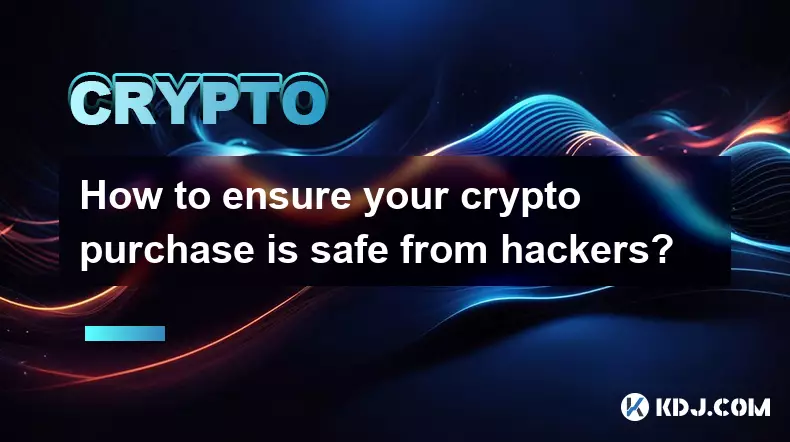
How to ensure your crypto purchase is safe from hackers?
Jan 28,2026 at 11:19pm
Secure Wallet Selection1. Choose hardware wallets for long-term holdings—devices like Ledger and Trezor isolate private keys from internet-connected s...
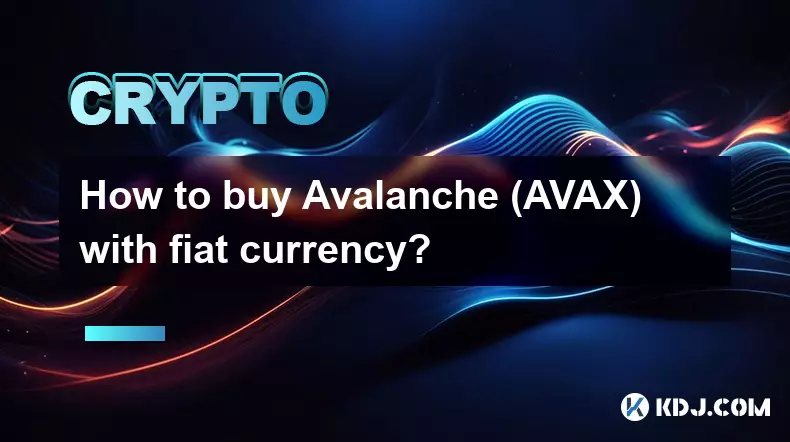
How to buy Avalanche (AVAX) with fiat currency?
Jan 29,2026 at 12:40pm
Choosing a Reliable Exchange Platform1. Identify exchanges licensed in your jurisdiction that support AVAX trading pairs with major fiat currencies li...
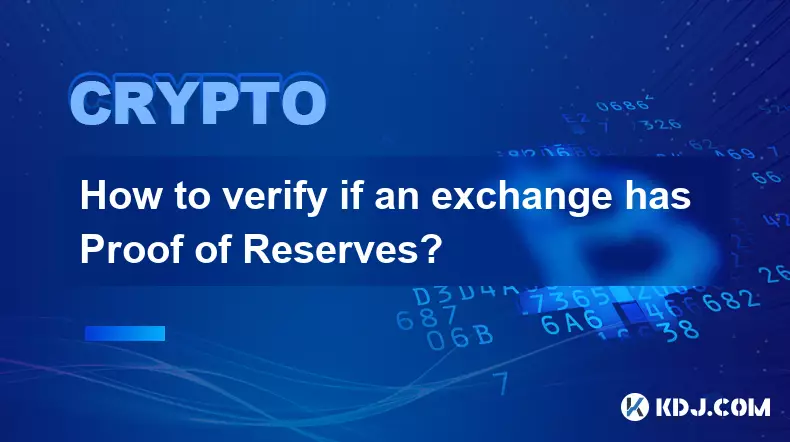
How to verify if an exchange has Proof of Reserves?
Jan 30,2026 at 06:39am
Understanding Proof of Reserves1. Proof of Reserves (PoR) is a cryptographic audit mechanism that demonstrates an exchange holds sufficient on-chain a...

How to leverage trade Bitcoin for beginners (Long/Short)?
Jan 29,2026 at 03:19pm
Understanding Bitcoin Price Movements1. Bitcoin’s price is heavily influenced by macroeconomic indicators such as interest rate decisions, inflation d...
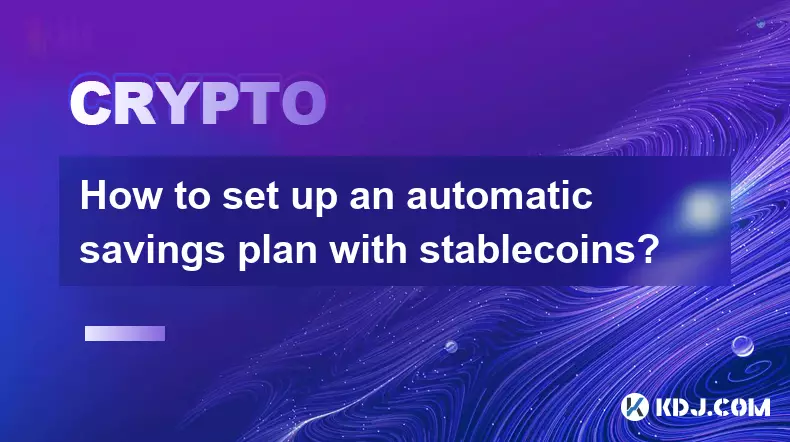
How to set up an automatic savings plan with stablecoins?
Jan 29,2026 at 06:39am
Understanding Stablecoin Savings Mechanics1. Stablecoins are digital assets pegged to fiat currencies like the US dollar, designed to minimize volatil...
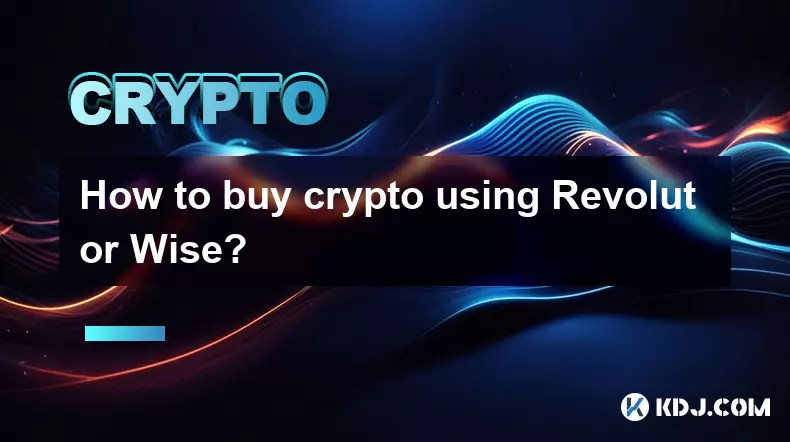
How to buy crypto using Revolut or Wise?
Jan 28,2026 at 11:00pm
Setting Up Your Revolut Account for Crypto Purchases1. Download the Revolut app and complete identity verification using government-issued ID and a se...

How to ensure your crypto purchase is safe from hackers?
Jan 28,2026 at 11:19pm
Secure Wallet Selection1. Choose hardware wallets for long-term holdings—devices like Ledger and Trezor isolate private keys from internet-connected s...

How to buy Avalanche (AVAX) with fiat currency?
Jan 29,2026 at 12:40pm
Choosing a Reliable Exchange Platform1. Identify exchanges licensed in your jurisdiction that support AVAX trading pairs with major fiat currencies li...

How to verify if an exchange has Proof of Reserves?
Jan 30,2026 at 06:39am
Understanding Proof of Reserves1. Proof of Reserves (PoR) is a cryptographic audit mechanism that demonstrates an exchange holds sufficient on-chain a...

How to leverage trade Bitcoin for beginners (Long/Short)?
Jan 29,2026 at 03:19pm
Understanding Bitcoin Price Movements1. Bitcoin’s price is heavily influenced by macroeconomic indicators such as interest rate decisions, inflation d...

How to set up an automatic savings plan with stablecoins?
Jan 29,2026 at 06:39am
Understanding Stablecoin Savings Mechanics1. Stablecoins are digital assets pegged to fiat currencies like the US dollar, designed to minimize volatil...

How to buy crypto using Revolut or Wise?
Jan 28,2026 at 11:00pm
Setting Up Your Revolut Account for Crypto Purchases1. Download the Revolut app and complete identity verification using government-issued ID and a se...
See all articles
























![[Audio stories] Streamer Became a Billionaire Overnight After Buying One Junk Coin [Audio stories] Streamer Became a Billionaire Overnight After Buying One Junk Coin](/uploads/2026/02/01/cryptocurrencies-news/videos/origin_697eaa9a495ed_image_500_375.webp)

















































